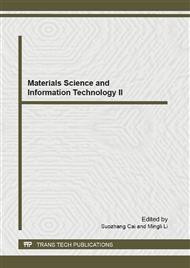p.1373
p.1378
p.1384
p.1389
p.1394
p.1399
p.1403
p.1409
p.1414
Research on the Adaptive Algorithm for Interference Cancellation
Abstract:
A adaptive interference cancellation algorithm was proposed in this paper. The MATLAB simulation results of the performance of five different kinds of adaptive interference cancellation algorithm were presented. According to the comparison of the simulation results, especially the usage of resource, convergence rate and effects of cancellation, the frequency-domain block LMS algorithm was selected suitable for the further design on FPGA. By simulating the functions by modelsim, and analyzing the PSD curve and the constellation of output signals, the adaptive interference cancellation algorithm system based on frequency-domain block LMS achieved expected effect. The better in-band flatness of the PSD curve and the higher convergence rate on constellation were obtained. Therefore, the frequency-domain block LMS adaptive interference cancellation algorithm is chosen as the design with high performance-price ratio.
Info:
Periodical:
Pages:
1394-1398
Citation:
Online since:
June 2012
Authors:
Price:
Сopyright:
© 2012 Trans Tech Publications Ltd. All Rights Reserved
Share:
Citation:


